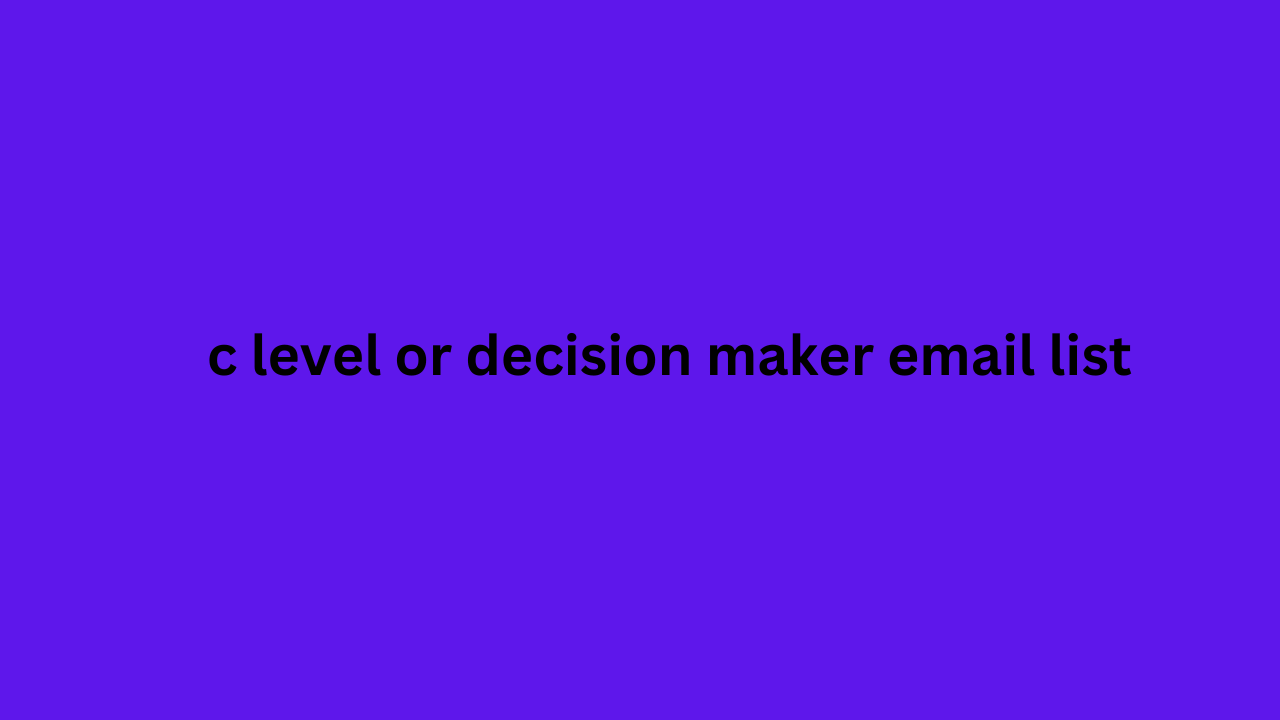2 key topics to plan your corporate event strategies
Posted: Tue Dec 17, 2024 4:20 am
If you are a company that offers high-value services or products, you know how important events are for your marketing strategies: good participation can give your sales force all the prospects they need to work with for several months.
What you achieve for your company by participating in an event depends a lot on good planning and this should be based on 2 key points:
Point 1: Define your objectives WELL
Now that you know you need to be at one of your industry's corporate events c level or decision maker email list and you have a broad understanding of what you want to accomplish, it's time to set specific goals. Give planning all the time it takes (not just days or weeks - good planning can take up to 6 months).

Why so long?
Because before you get involved with the thousands of coordination and production activities, you need to be very clear:
The goals you are going to achieve.
How does this support your marketing strategies?
How are you going to support the sales force?
How are you going to communicate to each department of your company.
To achieve this, align your objectives using the SMART methodology (Specific, Measurable, Attainable, Relevant, Timely) which makes your goals:
Specific
Measurable
Achievable
Relevant
On time
This applies to the commercial, public relations, communication objectives of every department. For example:
The Public Relations department aims to position the company as a collaborative enterprise.
This alone doesn't say much, but if you apply SMART to it:
Specific: We must establish collaborative ties with companies in our industry.
Measurable: We want to achieve joint plans with more than 5 companies in our industry.
Achievable: There are 100 participants, we want to reach 5%.
Relevant: Finding allies that complement us is part of the company's strategic objectives.
On time: We must finalize these alliances up to 2 months after the closing of the event.
This keeps all departments aligned and saves you from pointless debates halfway through (which jeopardize the outcome of the event).
What you achieve for your company by participating in an event depends a lot on good planning and this should be based on 2 key points:
Point 1: Define your objectives WELL
Now that you know you need to be at one of your industry's corporate events c level or decision maker email list and you have a broad understanding of what you want to accomplish, it's time to set specific goals. Give planning all the time it takes (not just days or weeks - good planning can take up to 6 months).

Why so long?
Because before you get involved with the thousands of coordination and production activities, you need to be very clear:
The goals you are going to achieve.
How does this support your marketing strategies?
How are you going to support the sales force?
How are you going to communicate to each department of your company.
To achieve this, align your objectives using the SMART methodology (Specific, Measurable, Attainable, Relevant, Timely) which makes your goals:
Specific
Measurable
Achievable
Relevant
On time
This applies to the commercial, public relations, communication objectives of every department. For example:
The Public Relations department aims to position the company as a collaborative enterprise.
This alone doesn't say much, but if you apply SMART to it:
Specific: We must establish collaborative ties with companies in our industry.
Measurable: We want to achieve joint plans with more than 5 companies in our industry.
Achievable: There are 100 participants, we want to reach 5%.
Relevant: Finding allies that complement us is part of the company's strategic objectives.
On time: We must finalize these alliances up to 2 months after the closing of the event.
This keeps all departments aligned and saves you from pointless debates halfway through (which jeopardize the outcome of the event).